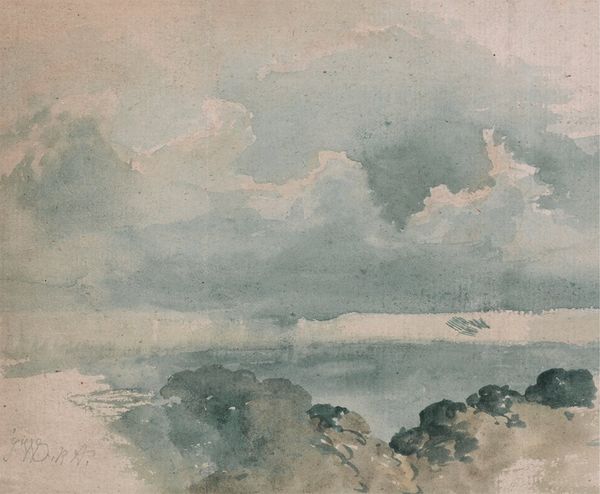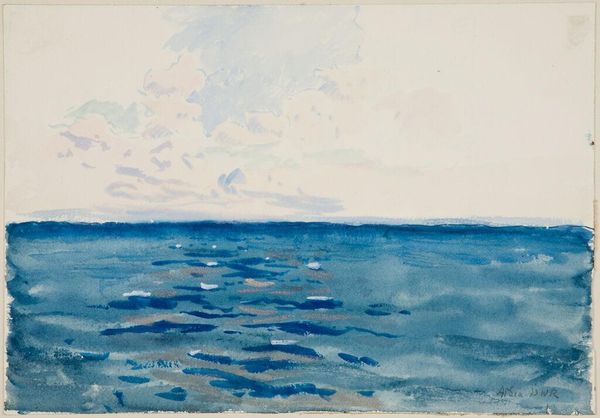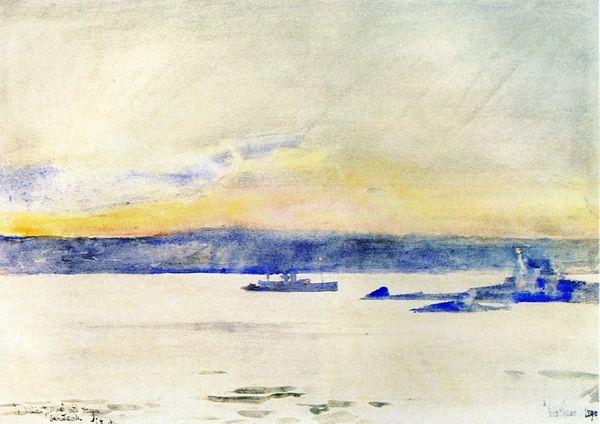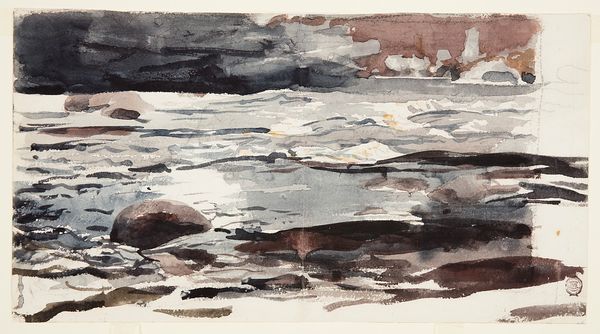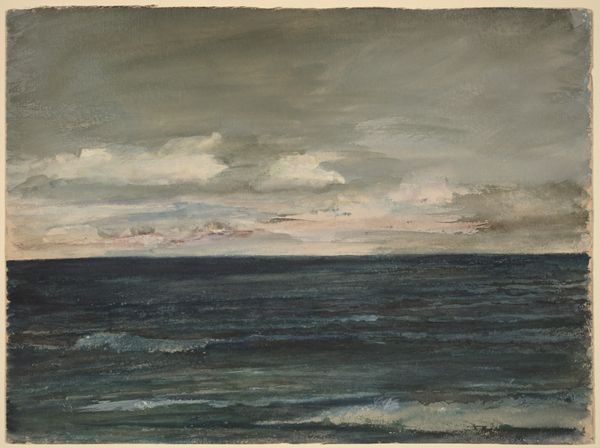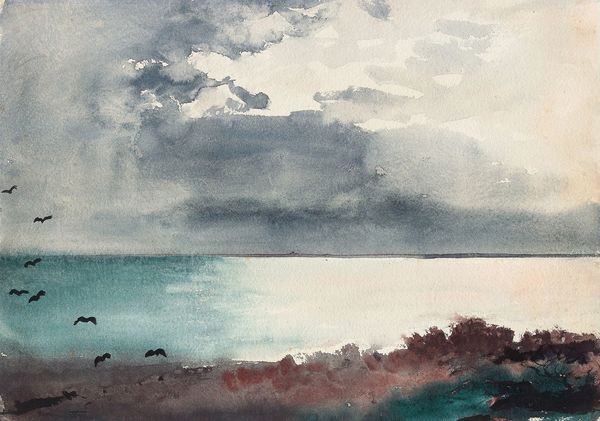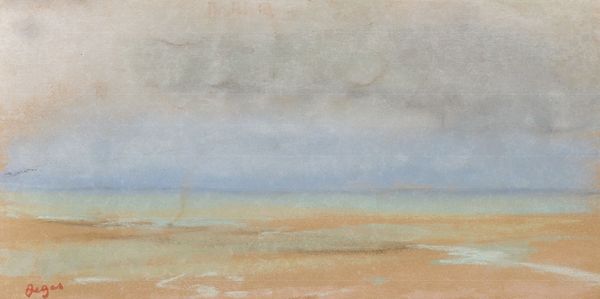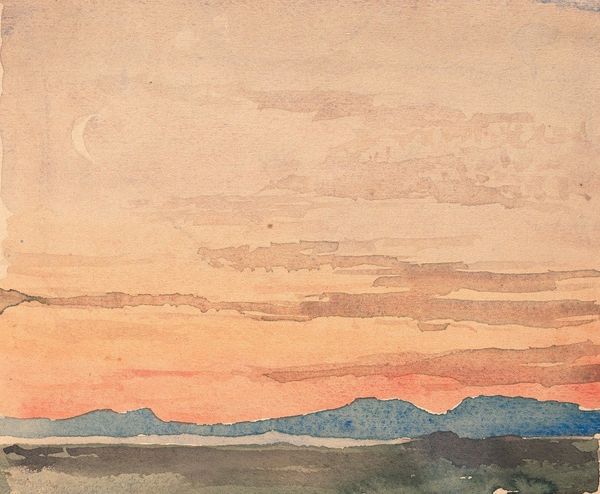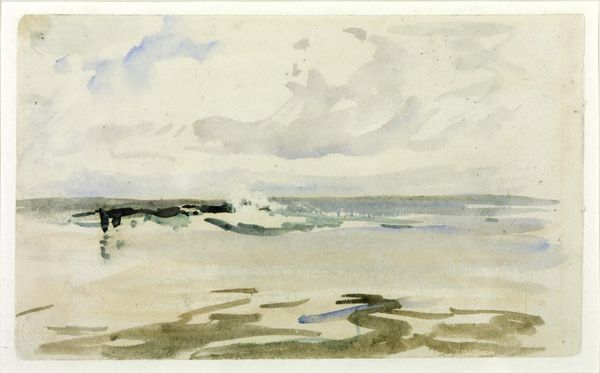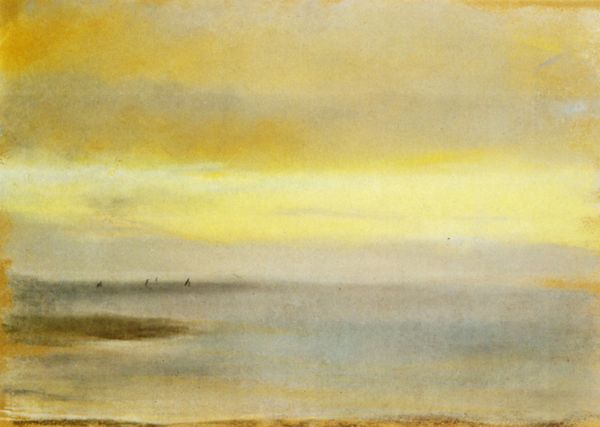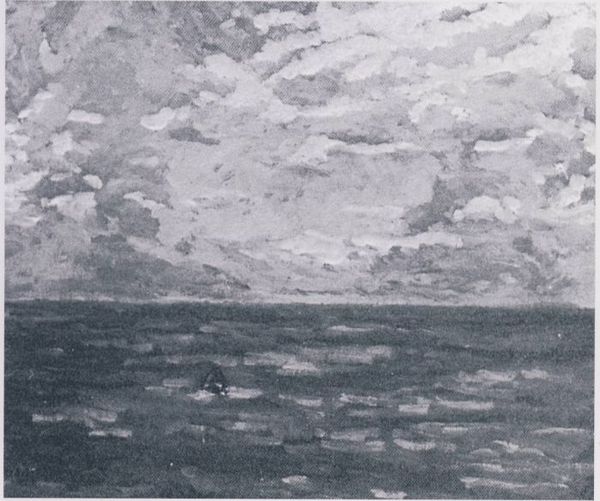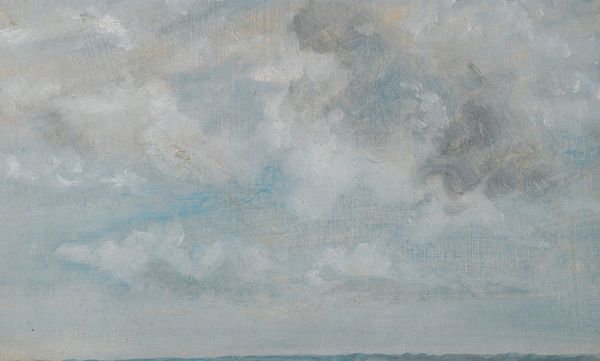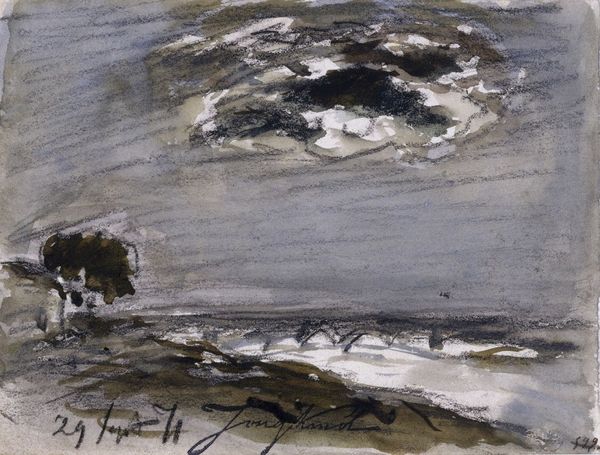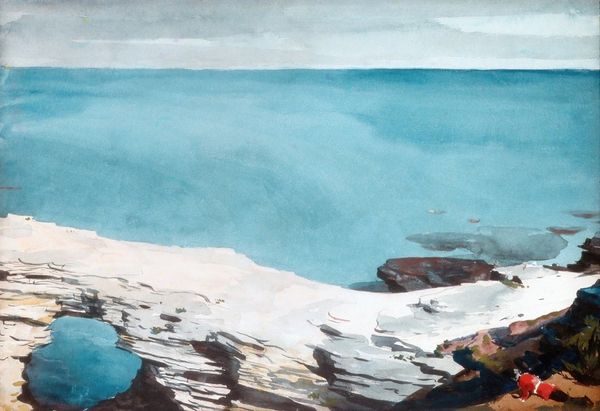
Copyright: Public Domain: Artvee
Curator: Standing before us is Winslow Homer's watercolor titled "Prout's Neck, Evening," created in 1894. Homer was an American artist renowned for his marine subjects. Editor: It's so melancholic, isn't it? The heavy sky, that muted palette... it speaks of a very specific loneliness, or perhaps just quiet contemplation. Curator: Homer's work often delves into such themes, the power and solitude of nature. He lived at Prout's Neck in Maine for many years, and it became a recurring motif in his paintings. This painting, created 'en plein air,' exemplifies his commitment to direct observation. Notice the swift, broad brushstrokes capturing the light filtering through the cloud formations. Editor: Right, those clouds almost feel oppressive, as if they are physically pressing down. The land seems a fragile border. It reminds me of how societal shifts can mirror environmental uncertainties, doesn't it? People seeing the power of nature represented in visual culture always have underlying thoughts regarding it. Curator: That is an insightful observation. It can be argued that the composition, the horizon line cutting the image nearly in half, emphasizes this tension between earth and sky, safety and the unknown. And his choice of watercolor – a notoriously difficult medium to control – itself reflects that precarious balance. Editor: The colors are quite muted. Homer seems to suggest some deeper more raw part of the world and ocean through this art style and the natural style and form, as though representing life itself is imperfect but contains great depths and value nonetheless. It strikes me that we often impose our anxieties and expectations onto landscapes. Curator: Absolutely, this painting could serve as a projection of individual emotions, or perhaps anxieties from the period. Homer had a way of translating personal observations of nature into larger statements. It truly makes one reflect on our relationship with the natural world, the eternal push and pull. Editor: Indeed. Thank you. That's given me a lot to contemplate this evening, considering our past interpretations and feelings toward Homer's painting, it seems this holds much value in our minds as society grows.
Comments
No comments
Be the first to comment and join the conversation on the ultimate creative platform.
